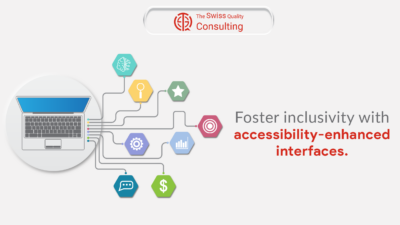Empowering Diversity in the Gaming Industry
Addressing the Need for Accessibility
In the rapidly evolving landscape of game development, there is a growing focus on accessibility and inclusivity. This shift is driven by a recognition of the diverse needs of players worldwide, including those in regions like Saudi Arabia and the UAE. Game developers are increasingly incorporating features that cater to a wide range of players, ensuring that everyone, regardless of ability, can enjoy and engage with their creations. From customizable controls to subtitles and audio descriptions, these accessibility features are revolutionizing the gaming experience, making it more inclusive for all.
Moreover, the emphasis on accessibility in game development extends beyond physical disabilities to include considerations for cognitive and sensory impairments. Developers are implementing features such as color-blind modes, adjustable difficulty levels, and text-to-speech options to accommodate diverse player needs. By embracing these inclusive design principles, game developers can create experiences that resonate with a broader audience, fostering a sense of belonging and empowerment among players of all backgrounds.
Promoting Diversity and Representation
Inclusivity in game development also involves promoting diversity and representation in character design, storylines, and themes. Games that feature diverse protagonists from various cultural backgrounds, genders, and identities not only reflect the real world but also provide players with opportunities to see themselves represented in digital spaces. This representation is particularly significant in regions like Riyadh and Dubai, where there is a rich tapestry of cultures and identities.
By championing diversity and representation, game developers can create immersive and engaging experiences that resonate with players on a personal level. Moreover, inclusive game design can challenge stereotypes, break down barriers, and foster empathy and understanding among players. In a world where digital experiences increasingly shape our perceptions and interactions, promoting diversity in game development is essential for creating a more inclusive and equitable society.
Embracing Inclusive Design Principles
The adoption of inclusive design principles is not only a moral imperative but also a strategic advantage for game developers. Inclusive games have the potential to reach a broader audience, driving engagement, retention, and revenue. By prioritizing accessibility and inclusivity from the outset of the development process, developers can future-proof their games and ensure long-term success in an increasingly competitive market.
Furthermore, inclusive game development can foster innovation and creativity by challenging developers to think outside the box and consider the needs of diverse players. In regions like Saudi Arabia and the UAE, where there is a burgeoning gaming market, embracing inclusive design principles can position developers as leaders in the industry. By creating games that are accessible to all, developers can leave a lasting impact on the gaming landscape and contribute to positive social change.
Collaboration and Knowledge Sharing
To truly embrace inclusivity in game development, collaboration and knowledge sharing are essential. Developers can learn from each other’s successes and failures, share best practices, and collaborate on projects that promote diversity and representation. In regions like Saudi Arabia and the UAE, where there is a growing community of game developers and enthusiasts, fostering collaboration and knowledge sharing can accelerate progress towards a more inclusive gaming industry.
Furthermore, governments, educational institutions, and industry organizations can play a vital role in supporting inclusive game development initiatives. By providing resources, funding, and infrastructure, they can empower developers to create games that reflect the diversity of their communities and contribute to positive social change. Together, through collaboration and knowledge sharing, stakeholders across the gaming industry can drive meaningful progress towards a more inclusive and accessible future for all players.
In conclusion, the future of game development lies in embracing accessibility and inclusivity as core principles. By prioritizing diversity, representation, and inclusive design, developers can create games that resonate with players of all backgrounds and abilities. In regions like Saudi Arabia and the UAE, where the gaming industry is flourishing, embracing these principles can drive innovation, foster collaboration, and create a more inclusive and equitable gaming landscape for generations to come.
#AccessibilityAndInclusivity #GameDevelopment #SaudiArabia #UAE #Riyadh #Dubai #ChangeManagement #ExecutiveCoachingServices #EffectiveCommunication #BusinessSuccess #ManagementConsulting #AI #Blockchain #TheMetaverse #LeadershipAndManagementSkills #ProjectManagement






















